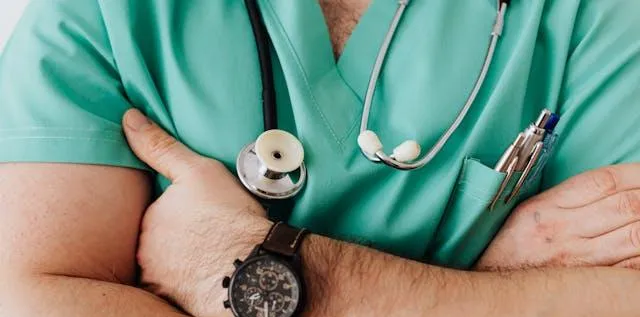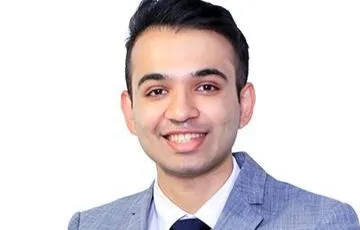The culture of medicine: a South-African perspective
Herbal medication

dfd
Image: Pexels
"Amputate my leg? Doctor, what do you mean?"
A conversation can be life-saving. A doctor’s decision to treat is complex, influenced by a myriad of factors, extending beyond the physical health of the patient. Some elements of health, however, go underrecognised and underappreciated in a holistic evaluation by medical practitioners, undermining optimal patient management.
A failure to consider the significance of culture and deep-rooted tradition in medical decision making may have dire consequences, with the potential of incurring patient harm and even death. South Africa is a diverse population, home to 12 official languages. Where English is the lingua franca, medical practitioners in urban and rural settings are also exposed to a vast proportion of patients with poor proficiencies in English.
Personally, the abundance of clinical exposure to rural communities during my student years has taught me that a good working knowledge of medical isiZulu is necessary to engage effectively with patients at a grass-roots level. Survival phrases in isiZulu such as "Sawubona mama… Unjani?" (Good morning mum. How are you?) or "Ngingakusiza ngani namhlanje?" (How may I assist you today?) are incredibly helpful to the young doctor who wishes to build therapeutic alliances with patients in local communities and explore local cultures.
Notwithstanding, there is always more to learn. My year in community service where I served as a medical officer in surgery further revealed the vital roles that traditional healers and non-allopathic forms of medicine play in the comprehensive assessment of the surgical patient in a local setting.
A Sangoma, or Inyanga, is a term given to a spiritual healer in Bantu communities in South Africa. They are highly respected with a vast knowledge of indigenous health systems and are also believed to have a divine connection to the ancestors. Interestingly, a Sangoma’s approach to the sick patient mirrors a medical practitioner’s in many ways.
A particular emphasis is placed on exploring the patient’s main concern through a history taking and a physical examination in certain circumstances. This is followed by a diagnosis and a prescription of a herbal medication or the performance of a ritual. Understandably, patients trust their recommendations with deep conviction and often prioritise traditional healers over medical doctors. However, it is the disharmony and miscommunication between both equally important schools of thought which often results in poor patient outcomes.
I rotated through the department of vascular surgery in Johannesburg and observed the heartbreaking but preventable deterioration in patient health. Specifically, I recall a patient who presented in septic shock as a result of necrotizing fasciitis of the leg.
My apologies for the medical jargon: this scenario describes a potentially dangerous infection of the leg which continued to spread and infect the entire body, resulting in a critical condition. He required an emergency amputation of his leg to control the infection. The patient was delirious and not stable to offer a comprehensive history.
Rapid interventions and diagnostics were necessary. I attempted to obtain a history from the patient’s accompanying family, hoping to find clues to guide my clinical reasoning. The patient’s family were not agreeable to a leg amputation. Subsequently, he patient’s wife revealed that her husband initially presented to their traditional healer, who recommended a herbal medication to apply to a leg wound.
They also sought medical care at the local hospital. The medical practitioner allegedly recommended admission to hospital and antibiotics to control the infection at its incipient stage. Through her distraught state, she expressed frustration that her husband’s concerns were received with a lack of empathy and disrespect at the initial visit, where the treating doctor reprimanded him for not prioritising hospital treatment and ingesting "dangerous herbs with no known medical benefit".
He felt "disrespected" and "unheard" that the doctor would so easily disregard his strong cultural views and left the hospital, seeing no further benefit in medical treatment. As medical doctors, we are agents of justice. We are professionally responsible for advocating for our patients in all spheres of their health. Additionally, patient autonomy should be respected, which echoes a sensitive consideration of the factors which determine their overall health.
This alludes further to cultural sensitivity on behalf of the medical practitioner, who should actively seek psychosocial determinants of health through a comprehensive history taking and exploration of the patient perspective. This is not easy. Certain medical specialties, like surgery, are dynamic and time-sensitive. In resource limited settings, the very nature of certain medical specialties may preclude a thorough history taking in emergency settings and building rapport with patients is often not possible.
So, what can we do?
There are ways to be more culturally aware in a clinical setting which should influence current practice and not be viewed as a burdensome, time-consuming exercise.
Be a local - speak the language
It is a herculean task to ask anyone, albeit a medical doctor, to learn every language of every population in his community. It is also not fair to assume that everyone has equal access to time or resources to learn different languages. It may be a higher yield option to learn basic greetings and survival phrases from your friends in the community to help ‘break the ice’ and build rapport with patients.
Try to visit a traditional healer
During my sixth year of medicine, I had the honour of visiting a Sangoma. I directly observed traditional practices, which enhanced my appreciation for their spiritual significance in society.
Reflect on your own cultural biases
Visceral biases often translate to stereotypes in medicine and can prevent the administration of equitable care to all patients. Take the time to introspect during down-time.
Communicate effectively
This may be difficult when confronted by high patient turnovers in the emergency setting. Speaking in simple terms and employing helpful communication strategies, such as a "sample" history, may be effective, relevant alternatives to take a quick patient history in emergency settings.
Evidently, a lack of effective communication and cultural harmony may damage a potential physician-patient relationship and lead to adverse outcomes. Context is always crucial. Attempts should always be made to treat the patient holistically. Facilitating the patient’s cultural and spiritual values may influence their decision to accommodate medical or surgical options when required.
Ultimately, your seemingly insignificant conversation and your genuine care in ascertaining what is important to them, may save your patient’s life.

Dr Ishq Pramchand
Image: Supplied
Dr Ishq Pramchand, 27, of Durban, graduated at the Nelson R Mandela School of Medicine at UKZN with Summa Cum Laude and as the Top Achiever of the Class of 2021. He currently serves as a medical officer in surgery in the private and public healthcare sectors. Email [email protected]
** The views expressed do not necessarily reflect the views of IOL or Independent Media.